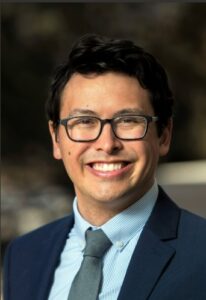Researchers are working on ways to make life easier for anyone facing a wildfire evacuation.
University of Alberta Civil Engineering Assistant professor Stephen Wong along with two other researchers are collecting data from five communities in BC and Alberta that includes Quesnel.
“We are mostly first interested in identifying communities that have high fire exposure.” Wong said, Finding places that you would have that high level of risk but then would also have risk related to it’s transportation system.”
Wong said when it comes to the transportation system they were interested in places that had limited ways of egress or ways to get out of a city in the event of an evacuation.

photo submitted
“We are looking at cities that were large enough to fill our survey requirements but also places that would be able to simulate some type of events both from a fire standpoint but also most importantly from a traffic analysis standpoint.”
Wong said the primary need of this research is that wildfire evacuations unfold in a very dynamic interaction between forest, roadway infrastructure as well as people.
“We’ve seen devastating consequences across many parts of Canada and the sheer number of evacuations that have occurred. So what this research is really trying to do is provide evidence and guidance for communities to better develop evacuation plans as well as improve their infrastructure in such ways that they could help facilitate a wildfire evacuation.”
There are three components to the research: one, a wildfire exposure model that looks at how fire can transmit into communities and looking at fire exposure assessment.
An evacuation simulation that imitates traffic as it moves throughout Quesnel and what that might look like and what changes you may need to make from a planning and strategic standpoint to improve those outcomes.
“My work is looking at human behaviour.” Wong said, “People make a number of choices in evacuations. Evacuate or stay followed by a number of transportation choices such as where they decide to go, what mode of transportation they use and when they decide to go. I’m really interested in this human behaviour in ways that we can identify plans and strategies to meet those specific needs in that community.”
Wong said they’ve been working on this research for about a year now gathering all of the data and starting to conduct the analyses from the five communities including Quesnel.
“We were able to visit Quesnel and see what it looks like and meet with officials on the ground and hear what their needs are. So we have about one year left until completion and we’re looking like we’re on track to meet those deadlines,” Wong said.
The other communities this research is focusing on are Salmon Arm and Nelson in BC, Whitecourt and Canmore in Alberta.
Something going on in the Cariboo you think people should know about?
Send us a news tip by emailing [email protected].









